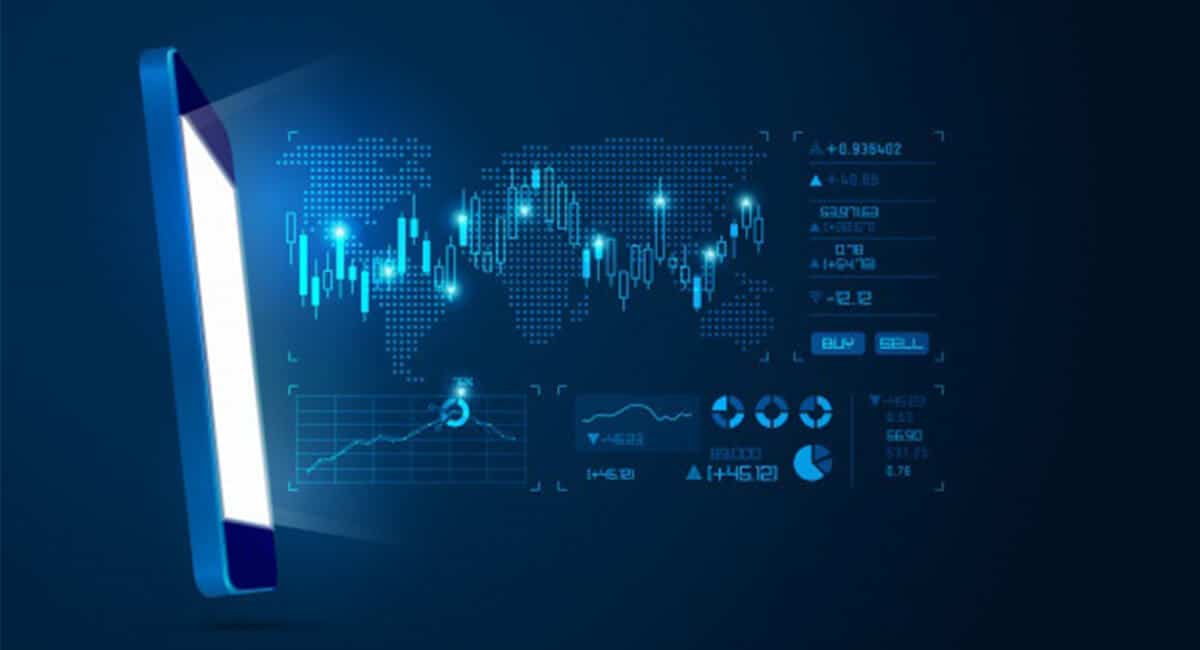Financial markets come in various guises. Here you will find the main market access types in one place, giving you an introduction to what might become your favourite market to trade.
From stock markets, indices, commodities, currencies, or digital assets and crypto, there is a financial market for you.
Indices
Trading ‘indices', or an ‘index' is one of the most popular markets around the globe. When many hear about ‘markets' they may think about the S&P 500, the FTSE 100, or the DAX, but these are in fact indices. The S&P is a selection of stocks listed on the US markets (NYSE, or NASDAQ), whilst the FTSE is collection of London Stock Exchange listed shares.
When you want to ‘trade the markets' in this sense, you cannot buy the LSE exchange as such, but you can buy into or trade the FTSE 100. See which top stock markets and indices we have covered on a regional basis below, then, move on and take a look at the other types of markets you might want to consider.
Daily Movers – Global Indices
- US
- Europe
- Asia
- Global
The major US indices are traded all around the globe, but not all are created equal.
From the very select names (30) in the Dow Jones, to the broader international markets addressed in the S&P 500, and the Nasdaq 100, each underlying stock will be on the watchlists of analysts and news outlets.
S&P 500
US Indices Today
Nasdaq 100
Dow Jones
Looking a little deeper, and you will find indices such as the Russell 2000, providing traders access to a grouping that focuses a lot more on US centric companies. Small caps and domestic businesses have their season, so you would be well advised to pay attention to the majority of the US indices.
The stocks featuring in US indices will be names plucked from the New York Stock Exchange, or NASDAQ, and there are various rules relating to index inclusion that you can find on our more detailed overview pages.
New York Stock Exchange (NYSE)
Founded in 1792, the largest stock exchange in the world by market capitalization. The NYSE is known for its prestigious listings, including many of the largest and most well-established companies globally. Along with having it's component companies listed on various indices, the NYSE Composite index is a more broad based index than others.
NASDAQ
Established in 1971 as the world’s first electronic stock market. The second-largest stock exchange by market capitalization.
STOXX 600 – 600 of the largest companies across 17 European countries.
STOXX 50 – composed of 50 blue-chip stocks from eight Eurozone countries: Belgium, Finland, France, Germany, Ireland, Italy, the Netherlands and Spain
Swiss Market Index (SMI) – The 20 largest and most liquid companies listed on the SIX Swiss Exchange.
DAX 40 – 40 largest and most liquid companies listed on the Frankfurt Stock Exchange in Germany.
FTSE 100 – 100 largest companies on the London Stock Exchange (LSE) by market cap.
FTSE 250 – 101st to 350th largest companies on the London Stock Exchange (LSE) by market cap.
CAC 40 – 40 largest companies by market capitalization listed on the Euronext Paris exchange.
Nifty 50 – 50 largest and most liquid companies listed on the National Stock Exchange (NSE) of India
Sensex – 30 of the largest, financially sound companies listed on the Bombay Stock Exchange (BSE) in India
KOSPI – represents all the stocks listed on the Korea Exchange (KRX) in South Korea
KOSPI 200 – top 200 stocks listed on the Korea Exchange (KRX)
FBM KLCI – 30 largest companies by market capitalization listed on the Bursa Malaysia
Hang Seng – the HSI includes the largest and most liquid companies listed on the Hong Kong Stock Exchange (HKEX)
SSE Composite – represents all the stocks listed on the Shanghai Stock Exchange (SSE) in China
SSE 50 – tracks the performance of the 50 most highly liquid and representative stocks listed on the Shanghai Stock Exchange
Nikkei 225 – 225 of the largest companies listed on the Tokyo Stock Exchange (TSE/ TYO) in Japan
TOPIX – all the stocks listed on the First Section of the Tokyo Stock Exchange in Japan
PSEI Index – tracks the performance of 30 blue-chip companies across various sectors on the Philippines Stock Exchange.
SET Index – the benchmark for equities traded on the Stock Exchange of Thailand.
ASX 200 – 200 largest companies by market capitalization listed on the Australian Securities Exchange (ASX)
All Ordinaries – 500 largest companies listed on the ASX based on market cap
FTSE South Africa – represents all companies listed on the Johannesburg Stock Exchange (JSE) in South Africa.
S&P Latin America 40 – the SPLAC represents five key Latin American markets, with the 40 leading blue chip names included from Brazil, Mexico, Chile, Colombia, and Peru.
IBovespa – composed of around 86 stocks selected based on market capitalisation, liquidity, and trading volume in Brazil.
FTSE ADX General – includes over 70 companies listed on the Abu Dhabi Securities Exchange
MSCI All Nigeria – designed to represent the Nigerian stock market, with NGX listed stocks, and those with primary operations in Nigeria
Currencies
The currency market, also known as the forex market is the largest financial market in the world, dwarfing even the trading volumes of the stock markets. The daily trading volume exceeds $6 trillion as of 2023, with the high volume ensuring substantial liquidity, and as perfectly priced a market as you can find. All this means that even large trades can be executed with minimal impact on the market price.
The Forex market operates 24 hours a day, five days a week, due to overlapping time zones across major financial centres such as New York, London, Tokyo, and Sydney. This allows traders to react instantly to geopolitical and economic events as they happen.
It is worth noting that forex is an over-the-counter (OTC) market, meaning trades are conducted directly between participants without a central exchange. This structure allows for more flexibility and decentralization but also less transparency.
EUR/USD
Forex Markets Today
Top 5 Forex Brokers:
Top 5 Crypto Brokers:
Top 5 Stocks Brokers:
ETFs
Commodities
The commodity trading market is a critical component of the global economy, providing a platform for buying and selling raw materials and primary agricultural products. Commodities are tangible goods that can be exchanged for value and are typically categorized into two broad types: hard commodities and soft commodities. Hard commodities include natural resources such as oil, gold, and metals, while soft commodities consist of agricultural products like wheat, corn, coffee, and livestock.
Commodity markets have existed for centuries, evolving from simple barter systems to sophisticated exchanges that facilitate complex financial transactions. These markets play a vital role in the global supply chain, ensuring the efficient allocation of resources and contributing to economic stability and growth.
Gold Futures
Commodity Markets Today
Digital Assets
The digital asset market, commonly referred to as the cryptocurrency market, represents one of the most innovative and rapidly evolving segments of the financial world.
Unlike traditional assets, digital assets are entirely electronic and typically rely on decentralized blockchain technology to ensure transparency, security, and trust. This market includes a wide array of cryptocurrencies, tokens, and other digital instruments that have transformed the way people think about money, investment, and value transfer.
The range of digital assets includes cryptocurrencies, tokens, stable coins, and NFTs.
Bitcoin Daily Chart
Crypto Markets Today













